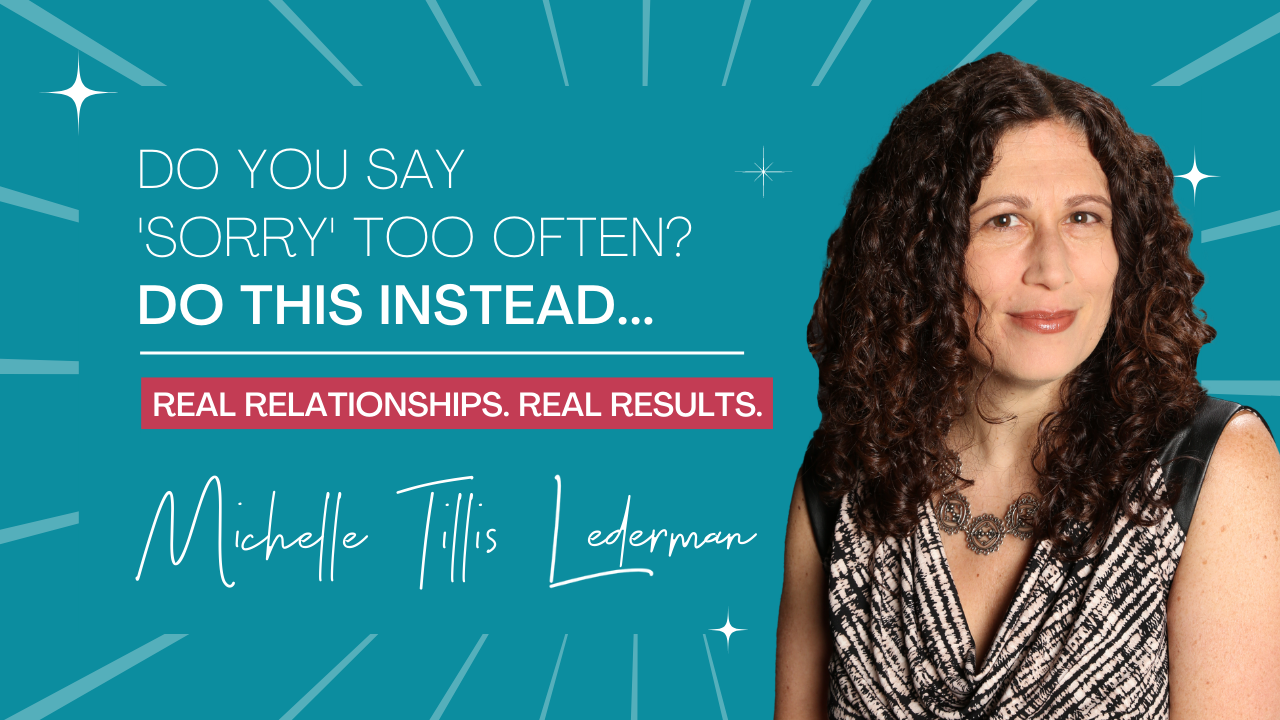Are you guilty of doing any of these…
- Starting a sentence with “Sorry, but”
- Including sorry when asking for something, “Sorry to ask…”
- Throwing sorry around too often and easily when you really didn’t do anything wrong?
Please stop saying you are sorry when you have nothing to be sorry for!
I have told many clients and students this piece of advice. Of course, if you have done something wrong, then, by all means, apologize freely and sincerely.
Apologize. That is the keyword here. I find there is a difference between the phrase, “I’m sorry” and the statement, “I apologize.”
So what’s the difference?
The words “I’m sorry” often become a throwaway phrase in English, used to minimize or discount ourselves. Sometimes we use it to give ourselves permission or a hedge to whatever we are about to say next. Sorry is too easily said and overused in situations where the situation does not warrant it.
If you have truly done something that you regret, a real apology must include accountability. Marshall Goldsmith says that an apology is an emotional agreement. Apologies can be extremely powerful when done correctly. Where sorry is a passive proclamation, sometimes even a dismissive statement, to apologize for something is an active choice.
In a thorough apology, you state your understanding of the impact of your actions. Then share your plans for changing or correcting that behavior going forward.
When we actively apologize rather than simply offering someone the word “sorry,” we build a bridge of communication with the person we are apologizing to. That bridge can strengthen and repair the relational damage that has been done.
If this one resonates with you, start shifting this habit. Start counting the number of times you use the word sorry in a day. Commit to donating a dollar or $20 every time you use it when you have nothing to be sorry for. You may soon realize if you are guilty of minimizing the power of an apology.


